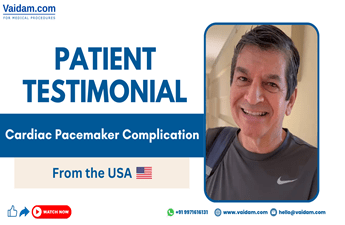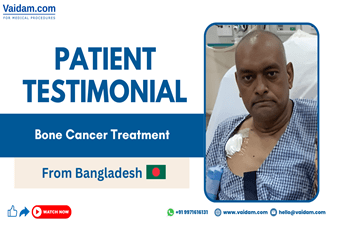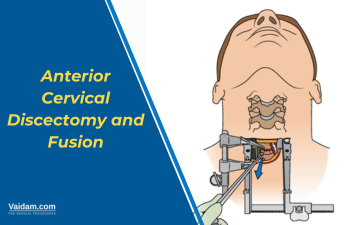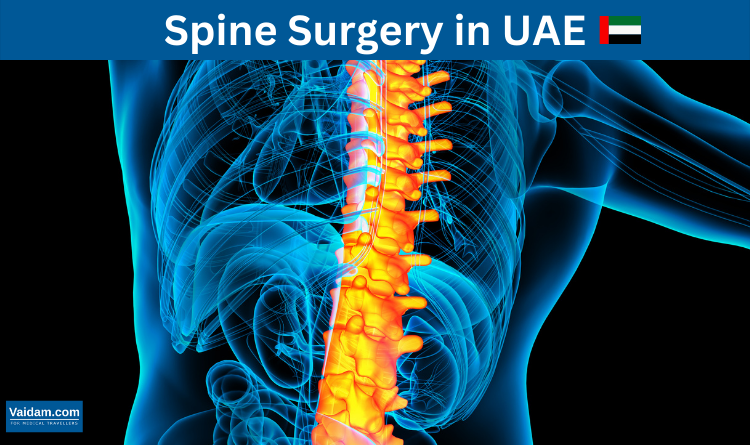
Most often people complain of suffering from back pain and in many cases the pain is chronic.
The advancement in surgical technologies has opened the way for precise and minimally invasive spine surgeries which became a corrective measure for a wide range of spinal problems like trauma, tumour or deformities.
In 2017, nearly 5.2 million spine surgeries were performed across the globe. These are the most rapidly growing in number when compared with other surgical procedures.
What is Spine Surgery?
The human body’s central support structure is the spine. It gives stability and keeps the human body upright.
The spinal cord, disks, nerves and 33 vertebrae (grouped as cervical, thoracic, lumbar, sacrum and coccyx) all together are combinedly called the spine.
Many people suffer from severe back pain and most often they complain that their normal and healthy living has been disabled because of this. In multiple cases, the patients experience a centred pain originating from the vertebrae and radiating into the leg or abdomen.
These chronic complaints are usually corrected by spine surgery when all other medicative procedures have failed.
What Medical Conditions Require Spine Surgery?
Most people suffering from chronic back pain opt for traditional treatments like pain management using medications or physical therapy with some lifestyle modifications.
Chronic pain is what the patient has been suffering for 12 weeks and specifically the pain that radiates from the back to the legs and creates problems with the bladder, bowels.
In case the diagnosis has proved the presence of any of the following conditions, spine surgery is needed:
-
Spine injuries,
-
Spinal deformities due to accidents or bad posture,
-
Spinal infections
-
Spondylolisthesis
-
The nerve root problem of the spine called Cauda equina
-
Degenerative spine conditions like stenosis
-
Vertebral fractures due to underlying conditions like osteoporosis
-
Herniated disks
All the above medical conditions cause chronic back pain in patients and make their life uncomfortable and miserable in many cases. They are addressed by the spine surgeries performed by spine surgeons.
These pathological conditions in the spine are corrected by spine surgeons who decompress, move and fix the vertebral structures to correct the existing deformity.
What Diagnostic Tests Are Done Before Spine Surgery?
Normal diagnostic tests like complete blood count, urine analysis, and inflammatory marker tests are done.
X-rays, CT scans, MRI scans, spinal taps and discograms are done to identify the exact location of the spinal defect and the reason for the pain.
Get in Touch with Medical Experts
What Does A Spine Surgeon Do In A Spine Surgery?
A spine surgeon either operates in a traditional manner by making an incision in the back and opening along the length of the backbone.
The other method is to adopt minimally invasive procedures. Small incisions are made in the back through which surgical instruments are introduced into the patient's body to correct medical ailment. This method ensures lowered infection chances and fastens the recovery time.
Nowadays, advanced robotics has allowed surgeons to place precise screws into the vertebral disks in order to attain the highest accuracy.
What Is Done In Spine Surgery?
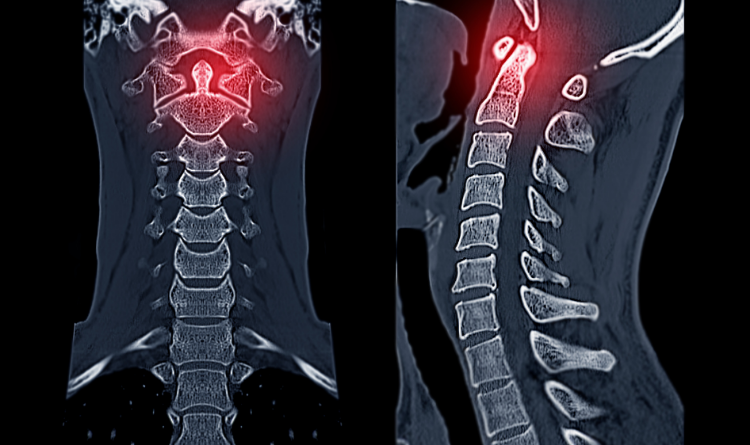
Spine surgeries are of different types and the type of surgery varies from the patient and largely depends on the underlying cause behind chronic back pain.
-
Discectomy: The discs between vertebrae bulge out which are otherwise called herniated disks. This bulging pressurises the nerve roots causing tingling, pain and numbness.
Microdiscectomy is the removal of the discs that pressurise the nerve roots. In some discectomies, the surgeon wears glasses that function as a microscope.
-
Laminectomy (spinal decompression): It is done in spinal stenosis where the spinal canal narrows up pressurising the nerves surrounding the spinal cord. The surgeon removes bony parts of vertebrae leaving space and relieving pressure on the nerves.
-
Vertebroplasty: The special glue-like bony cement is injected into fractured vertebrae because of osteoporosis. This material hardens and strengthens the bones.
-
Kyphoplasty: It is a similar procedure as vertebroplasty, while a small ballon-like inflation is made between the vertebrae. This creates space for the addition of glue-like bony cement.
-
Foraminotomy: It is the surgical process of creating space for the pressurised nerve root, especially at the site of nerve roots leaving the spinal canal.
-
Spine fusion: This involves the surgical removal of one or two discs between the vertebrae, followed by the adjacent vertebral fusion. Either bony grafts or screw-like metal devices are used for fusion. The patients require more extended recovery periods and may lose the flexibility to some extent.
-
Disc replacement: This is an alternative for spinal fusion and is done only in severely damaged vertebrae. A synthetic one replaces the damaged disc. This restores the height and space for the free movement of vertebrae and provides flexibility to the vertebral column.
-
Anterior cervical discectomy and fusion: This involves the surgical removal of a damaged disc and the placing of a bony graft or artificial spacer. This is done for the cervical vertebrae through a small incision made on the front side of the neck.
Minimally invasive procedures are often adopted for the added benefits like,
-
Fewer chances of infection,
-
Less bleeding,
-
Speedy recovery,
-
Cosmetic reasons,
-
Decreased requirement for rehabilitation.
Want to know more about herniated disc treatment, click here
Want to know about scoliosis treatment, click here
What Are The Risks of Undergoing Spine Surgery?
-
The recovery period is quite longer in spine surgeries and most patients require rehabilitation.
-
Some surgeries limit the backbone flexibility and in rare cases even loss also.
-
Another serious risk is the damage to nerves closer to the spine resulting in paralysis and infections.
How Long Will The Hospital Stay For Spine Surgeries Be?

A patient needs to stay in the hospital for about 1-3 days. In the case of major surgeries like spinal fusion, the length of hospital stay generally is long.
The doctors recommend certain small movements at the beginning followed by physical therapy within 24 hours.
Physical rest is very important in these cases and later the patients are moved slowly from bed to chair and gradually allowed to walk with help of a walker.
What Are The Post-Surgery Pain Management Tips?
Spine surgeries are associated with a high degree of post-surgery pain.
The pain management experts prescribe pain relieving medication based on the medical condition as well as the previous medical history of the patient.
Some pain management options are
-
Corticosteroids,
-
Non-steroidal anti-inflammatory drugs,
-
Opioids,
-
Local anaesthetics.
Some patients have been prescribed a combination of approaches in order to minimise opioid usage which has the potency to cause addiction.
Is Choosing UAE For Spine Surgery A Good Decision?
UAE is definitely a good option for spine surgery for patients around the globe. The UAE's healthcare system is patient-friendly and the ultra-modern hospitals in UAE are equipped with highly precise and advanced equipment.
The quality of care and usual success rate of the operating procedures is high in UAE making it an ideal option for patients to choose as a destination for spine surgeries.
Best Hospitals For Spine Surgery In UAE
-
Thumbay Hospital, Ajman: This hospital offers world-class medical facilities at affordable prices. It is the first choice for treatment for patients across 150 nationalities and has been awarded the Best Medical Tourism Hospital in the Middle East.
-
Al Zahra Hospital, Dubai: It provides a high standard of medical and surgical treatment and is the 2018 winner of the Annual Health magazine awards.
-
Saudi German Hospital, Dubai: It provides one-stop medical facilities and it received Gold certification for Patient-centred Care excellence from Planetree International USA.
-
Canadian Specialist Hospital, Dubai: It provides world-class medical care and is the first choice of reference for medical centres lacking facilities. It provides a telemedicine facility and has also received the Best Hospital For Medical Tourism award from the DHA health awards in 2018.
-
Prime Hospital, Dubai: It is a reputed institute and one of the top hospitals in UAE and is accredited by JCI (Joint Commission International) and by the Australian Council on Health Standards.
Top Spine Surgeons In UAE
-
Dr Fadel Fouad Gendy: He is a renowned Neurosurgeon having 34+ years of experience in performing surgeries for correcting spine tumours, spine trauma, disc herniation, congenital anomalies of the spine and brain, and also minimally invasive spine surgeries.
-
Dr Muhammed Chishti: He is a reputed Neurosurgeon experienced in surgical correction of spinal tumours, spine infections, spinal dysraphism and spinal degenerative disorders.
-
Dr Nicandro Figueiredo: He is a reputed Spine Surgeon highly experienced in performing spine surgeries like kyphoplasty, spine infections, cysts, and tumours, spine neuronavigation, micro fusion and minimally invasive spine surgeries in children and adults.
-
Dr Khaled Mabruk Faraj: He is a famous Neurosurgeon with 29+ years of spine surgery experience. He is an expert in treating spine deformities through kyphoplasty, vertebroplasty, stentoplasty, orthopaedic tumours and traumas, and minimally invasive spine surgeries.
-
Dr Zaid Al Aubaidi: He is a specialist trained in treating musculoskeletal problems in children. He performs Paediatric Spine Surgeries for correcting the problems like scoliosis, sports injuries in children, kyphosis, paediatric spine infections, and cerebral palsy.
What is the Cost of Spine Surgery in the UAE?
The costs of spine surgeries in UAE are comparatively higher since they are operated with highly precise procedures like minimally invasive endoscopic spine surgeries.
This helps the patients have a faster recovery minimising the chances of recurring pain that they may experience in traditional spine surgeries.
How Can A Patient Obtain A Medical Visa For Treatment In UAE?
A UAE-registered and certified medical service-providing hospital where the patient is aspiring to take medical treatment has to raise an appeal to the UAE’s visa-issuing authorities.
It is the General Directorate of Residency and Foreign affairs (GDRFA) that issues the Patient Entry Permit for Dubai.
For the other seven Emirates of Arab, the visa-issuing authority is the Federal Authority for Identity and Citizenship (ICA).
What Is The Medical Visa Validity Period In UAE?
A patient has to plan their medical travel within 60 days after obtaining the UAE patient entrance permit and can stay up to 90 days for their treatment after entering UAE.
They can obtain a single entry permit which allows them to enter UAE only once and obtain treatment.
Another option is to obtain multiple entries visa that allows multiple entries each with a maximum of 90 days.
In case the patient requires an extension of stay, the medical service provider is required to provide valid documental proof explaining the patient's medical condition and the necessity of an extended treatment plan.
What Documents Should A Patient Produce During The Visa Process?

The patient is required to produce the following documents:
-
Valid passport.
-
Medical letter from the hospital intending to provide medical treatment
-
Medical insurance proof.
-
Documental profs of financial stability
Role Of Vaidam Healthcare
Vaidam is accredited by NABH and has been helping medical travellers from different social, cultural and financial backgrounds to obtain quality and best healthcare treatment in different nations.
UAE is one such place where medical travellers can find the best healthcare system. To get support from Vaidam’s team, you are free to raise a request quote.
Conclusion
United Arab Emirates (UAE) is rapidly evolving in the medical care system. Its quality struck hospitals offer the best clinical care services for patients approaching from around the world. The comparatively lower cost of treatment and the easier medical visa process driven by the medical provider themselves, make UAE a better choice for spine surgeries for patients from around the globe.
Frequently Asked Questions
-
What is the time taken for spinal fusion surgery?
Ans: Spinal fusion surgery takes about 2-3 hours and may also increase with the level and extent of fusion also.
-
What is the success rate of spine surgery?
Ans: The success rate of spine surgery can be related to pain relief which is around 70- 80%.
-
Does a patient need to take bed rest after spine surgery?
Ans: Recommending bed rest for patients who underwent spine surgery is long back. Nowadays, patients who underwent spine surgery are allowed to walk after a day.



